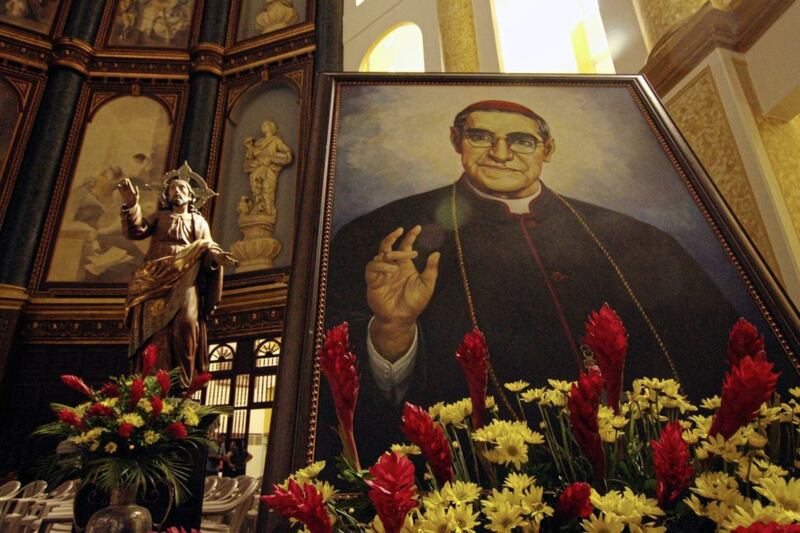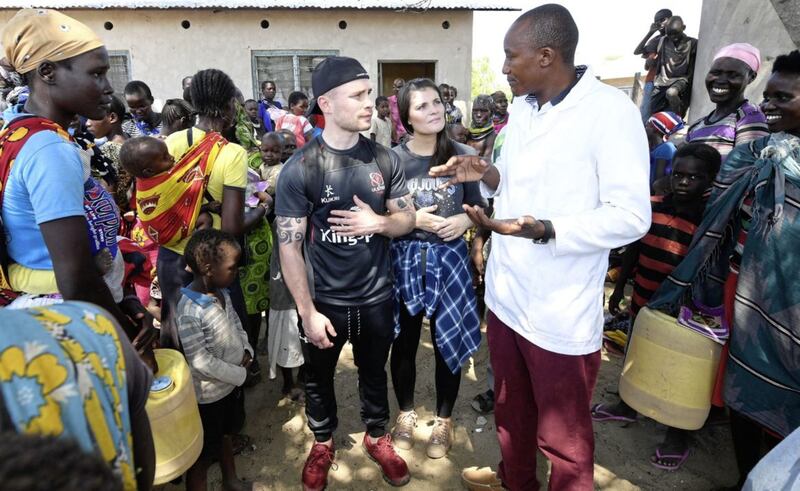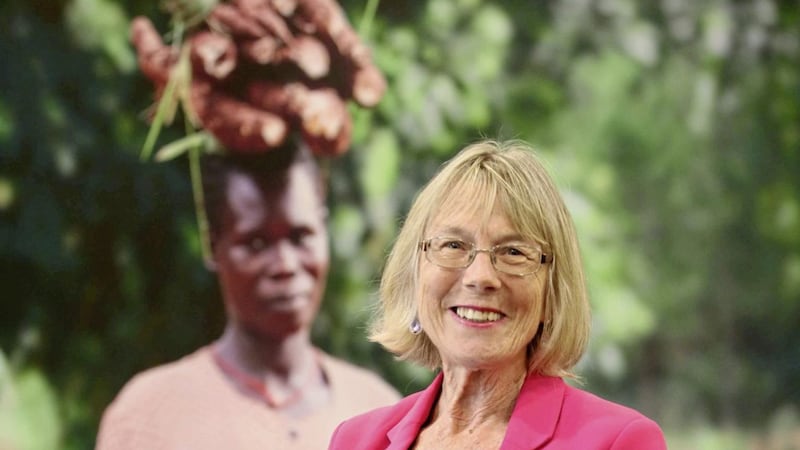HOWEVER you measure it, Peru is a long way from Ireland.
So it says something of the international reach of Trócaire - even in its earliest days, having been founded in 1973 - that Sally O'Neill first encountered the Irish Catholic Church's overseas development agency not in her native Dungannon but 6,000 miles away in South America and a remote part of the Amazon.
It was, said Ms O'Neill, "purely by chance" that she was introduced to Trócaire; it was a meeting that was to lead to a near-40-year career with the charity.
"I was working on a project and travelling up the Amazon River when we had to pull over to a small indigenous village due to rough rapids," she recalled.
"A charity was working there on a health programme and I remember being instantly impressed with the work they were doing and the vital help they were giving to this really remote and vulnerable group of people.
"I didn't believe in destiny until then but when I heard that the charity was from home - Trócaire - I knew this was where I was meant to be."
Ms O'Neill was born in Dungannon and moved to Belfast when she was 18 to attend college.
Later, she took a job in Latin America before that chance encounter on the Amazon led to a job with Trocaire in 1978.
The timing meant that she was plunged straight into a series of significant humanitarian crises in the region.
"Within weeks of joining Trócaire, three brutal civil wars broke out in El Salvador, Guatemala and Nicaragua, so it was a very challenging time," she said.
"Part of my role was to bring delegations of Irish politicians and bishops to Central America so they could witness the atrocities that were happening and raise the issues within the EU.
"That delegation included bishops from Derry and Armagh - which of course was during the height of the Troubles - so they understood instinctively the problems people were facing in the Central American region and their support was invaluable."
I worked closely with Archbishop Oscar Romero during my time with Trócaire and translated for him just six weeks before he was murdered. He was an inspiration
With Trócaire, Sally oversaw humanitarian aid to more than two million refugees in the area and was an activist for human rights during a very difficult time.
"The human rights abuses I witnessed in Latin America and the killing of some incredible people just because of the work they were doing is still very difficult to comprehend," she said.
This included Archbishop Oscar Romero who was assassinated in 1980. He had emerged as a powerful critic of the murders, tortures, poverty and injustices prevalent as El Salvador descended towards civil war.
He died in front of the altar of a small chapel in a hospital when a gunman fired at him from the door, shooting him in the heart.
"I worked with him closely during my time with Trócaire on a number of projects and translated for him just six weeks before he was murdered," said Ms O'Neill.
"He was an inspiration - very humble and very committed to speaking out against the brutal human rights violations that were happening.
"Sadly, along with many others in the Church at the time, he paid for his work with his life."
Pope Francis said that Romero's ministry "was distinguished by his particular attention to the most poor and marginalised", and he is due to be canonised alongside Pope Paul VI in St Peter's Square in the Vatican next month.
Ms O'Neill is looking forward to being part of the celebration on October 14.
"I am delighted to have just received an invitation to be in Rome on the day of his canonisation," she said.
"It was a fantastic experience to have known and worked with someone of his calibre so it will be a very special day for me."

Other experiences in El Salvador included investigating reports of a massacre in the village of El Mozote in 1982 with Michael D Higgins, who was then a TD.
They uncovered evidence of that civilians had been massacred and their report caused international shock waves.
Somalia was especially challenging and the most dangerous place I have ever worked
During her career, Ms O'Neill also worked in Ethiopia during the famine in the mid-1980s and played a central role in Trócaire's response to the famine and civil war in Somalia in the early 1990s.
"There is nothing more shocking than going into enormous camps in the middle of a famine and seeing people who are starving to death - that is something I will never get over," she said.
"Somalia was especially challenging and was the most dangerous place I have ever worked.
"There was no functioning government and every district was controlled by different warlords so it was very difficult to get supplies in and to set-up our much-needed programme there.
"But that is one of the reasons I am so proud of Trócaire - the charity doesn't run away from the difficult issues and helps where help is really needed.
"To this day Trócaire still has a programme in Somalia. Despite the challenges still faced in the country, the education and health projects they have are outstanding successes."
The Somalia project is just part of Trocaire's work today. Last year, the charity supported 2.8 million people in 20 countries in the developing world.
Its work includes helping people to grow food to survive, protecting human rights and supporting those living through humanitarian emergencies.

Ms O'Neill's own achievements have been recognised with a string of honours, including an honorary doctorate from Ulster University last year, the Hugh O'Flaherty Humanitarian Award in 2011 and being appointed by the President to serve as a member of the High Level Panel for the Presidential Distinguished Service Award for the Irish Abroad.
She retired from Trócaire in 2015 but continues to work in human rights in Honduras.
The work of organisations like Trocaire can transform lives, she says.
"I would like to thank everyone in Northern Ireland who has supported the vital work that is being done in the developing world," she said.
"The level of change that can be brought about even by supporting small projects is immense and I have seen for myself how lives can be transformed."
Ms O'Neill drew on her considerable experience at the World Meeting of Families, where she took part in a discussion entitled 'Faith, Family and Development: The Witness of Women in Leadership'.
Alongside her were other courageous women who have made a difference; leaders from Zimbabwe, Jerusalem and Sierra Leone, among others.
"I love being able to return to Ireland and was delighted to have been invited to take part in the World Meeting of Families," said Ms O'Neill.
"While I still have family in Dungannon and am very close to them, there is still a lot of work to do in Latin America and so I don't see myself moving home just yet."









